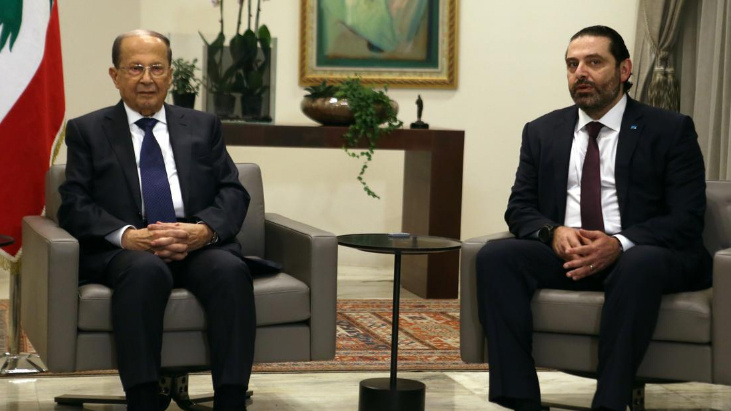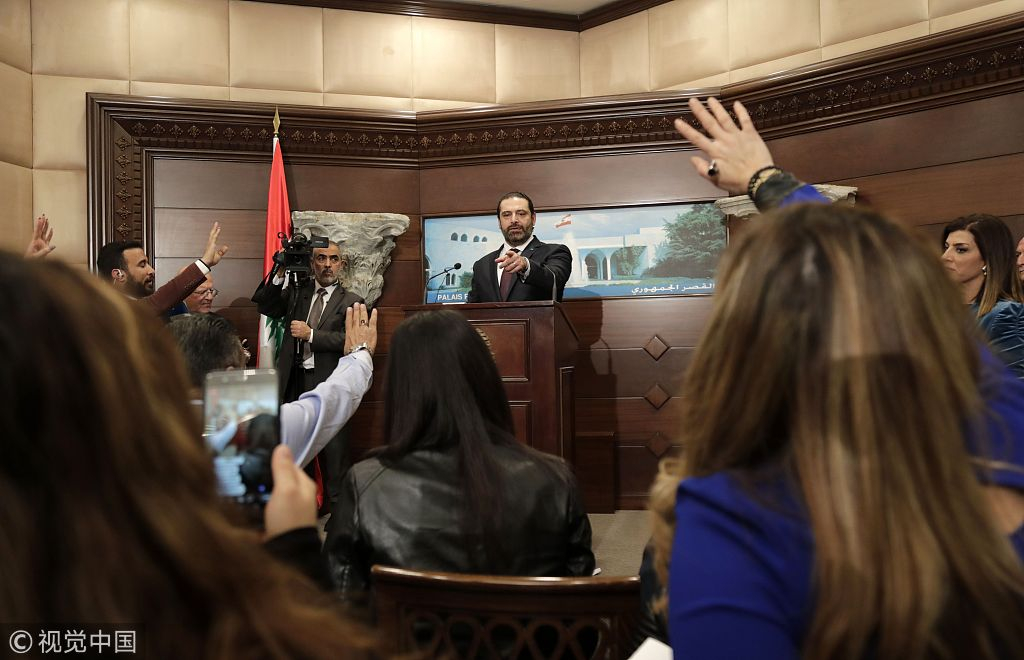
Middle East
09:00, 01-Feb-2019
Lebanon forms new government, PM vows bold reforms
CGTN

Lebanon formed a new national unity government on Thursday, ending nine months of wrangling, and Prime Minister Saad al-Hariri said bold moves were needed without delay to address chronic problems facing the heavily indebted state.
The government of Hariri includes most parties including the heavily armed, Iran-backed Hezbollah, which emerged stronger from the parliamentary election last May thanks to gains by its allies. Hezbollah chose the new health minister.
Some Lebanese bond prices jumped to their highest level since August in response to the news, and celebratory fireworks burst over Beirut shortly after the deal was announced.
Hariri must now deliver on promises to rein in public spending to address the dire state finances with reforms that could unlock billions of dollars in pledged aid and loans for infrastructure investment.
In a statement read from the presidential palace, Hariri apologized to the people of Lebanon for the time it had taken to form the government and noted that they were “living in concern” over the economy.
The time for “painkillers” was over, he said. “No one can put their head in the sand any more ... All the problems are known and the causes of the corruption and waste and administrative deficiency are also known,” he said.
“The solution is with a clear program and bold reforms ... and developing laws that cannot be delayed.”
Earlier on Thursday, he said the new government would be forced to “take difficult decisions” to reduce spending.
Concerns have grown over the state of the economy and government finances. Finance Minister Ali Hassan Khalil – who retained his post – warned last month that Lebanon was in an economic crisis that has “started to turn into a financial one.”

Lebanese Prime Minister Saad Hariri (C) addresses the media after announcing the new cabinet during a press conference at the presidential palace in Baabda, east of the capital Beirut, on January 31, 2019. /VCG Photo
Lebanese Prime Minister Saad Hariri (C) addresses the media after announcing the new cabinet during a press conference at the presidential palace in Baabda, east of the capital Beirut, on January 31, 2019. /VCG Photo
Lebanon's public debt is one of the highest in the world set against the size of its economy, and it has suffered low growth for years for reasons including regional turmoil.
Gebran Bassil, a political ally of Hezbollah who is the son-in-law of President Michel Aoun and leads the political party he founded, remained foreign minister.
The defense portfolio, significant partly due to major U.S. military aid, went to another Aoun loyalist, Elias Bou Saab.
Hariri nominated Rayya Hassan, a former finance minister, to the post of interior minister. She is one of four women in this cabinet, compared with only one in the last cabinet.
While not a Hezbollah member, Health Minister Jamil Jabak's appointment has been seen as a signal of its determination to exercise more direct sway over the government after playing marginal roles in past cabinets.
The ministry has the fourth-biggest budget in the state.
Hezbollah, which is designated as a terrorist group by Washington and has come under fresh U.S. sanctions, also has two other cabinet seats.
The anti-Hezbollah Lebanese Forces party, which nearly doubled its number of MPs last May, has ceded ground at least twice in the negotiations, enabling the government to be formed.
6982km
Source(s): Reuters

SITEMAP
Copyright © 2018 CGTN. Beijing ICP prepared NO.16065310-3
Copyright © 2018 CGTN. Beijing ICP prepared NO.16065310-3